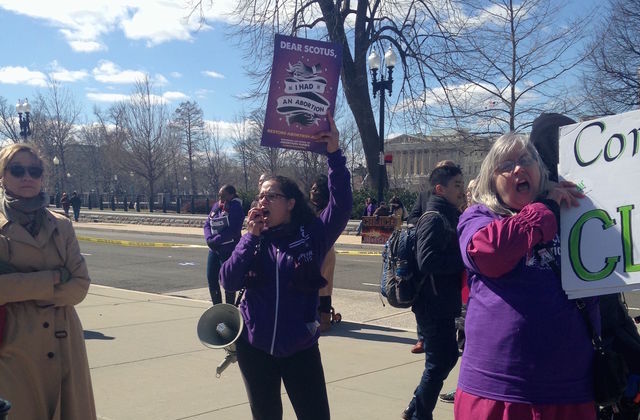We hear a lot about how anti-abortion government policies make it more difficult for women who want to get an abortion to access one. The hurdles laid out in front of someone who is pregnant and doesn’t want to be are extensive, and most of them are financial, meaning that low-income women face more burdens.
But it’s still rare to hear, in detail, what happens to someone who can’t get the abortion that they want.
Brittany Mostiller became pregnant with her third child in 2006 at 22. She couldn’t terminate the pregnancy because her Medicaid wouldn’t cover it and she had no way to access the funds needed to pay for the procedure.
In a new Fusion article, she tells her story:
It wasn’t anything I wanted at that time, but she was coming and ain’t a thing I could do about it. That was just it. To even say that aloud, even now—you don’t wish that on anyone. I wanted to have a happy experience, I wanted to look forward to seeing my child and meeting her. There was no moment when it felt like “This is OK,” there was no moment when I felt, “Let me get happy.” There was no switch for me to turn on. It’s still something I struggle with, that feeling. I struggle with it now even trying to talk about it.
The pregnancy was hard for me. I was stressed, I was in a lot of pain, and I would just cry. I was depressed. It was just not a good space for me, mentally or physically. And I’m still trying to be a parent through all of this. I think it all had an effect. My water broke early—32 weeks—and I delivered at 33 weeks. She was my tiniest baby.
I love her dearly, but I know that wasn’t what I wanted. I didn’t have an option. After she was born, I guess I went into autopilot. That was the story of my life for a long time, being a parent, being a [B]lack woman, trying to support my family. I couldn’t feel or process anything, any emotion. I needed to make sure I had diapers, that I had onesies, that I could get on food stamps. I had to make sure I was able to physically take care of my children. That was it. There wasn’t room for anything else.
Just this excerpt weaves in many threads facing low-income Black women when it comes to parenting in the United States: limited choices and a much higher risk of premature labor and low-infant birth weight. Research is beginning to make concrete links between the health problems Mostiller describes and the stress of discrimination and racism, something that contributed to her limited options.
While Mostiller’s experience is in many ways a success story—she’s now the executive director of the Chicago Abortion Fund, after working retail jobs to make ends meet after her daughter was born—she resists being used as an example by those who want to restrict abortion.
And people who are anti-abortion will try to use my story to say, “See, you can make it work. You struggle through it.” I don’t even have the language for that, but I want to counter it by saying it’s wrong. That’s not the truth. If people want to have an abortion, they should be able to.
You can read more about her experience, and also a story from a woman who was able to pay for her abortion—a stark contrast and reminder of how much access to abortion services can change a life course.
